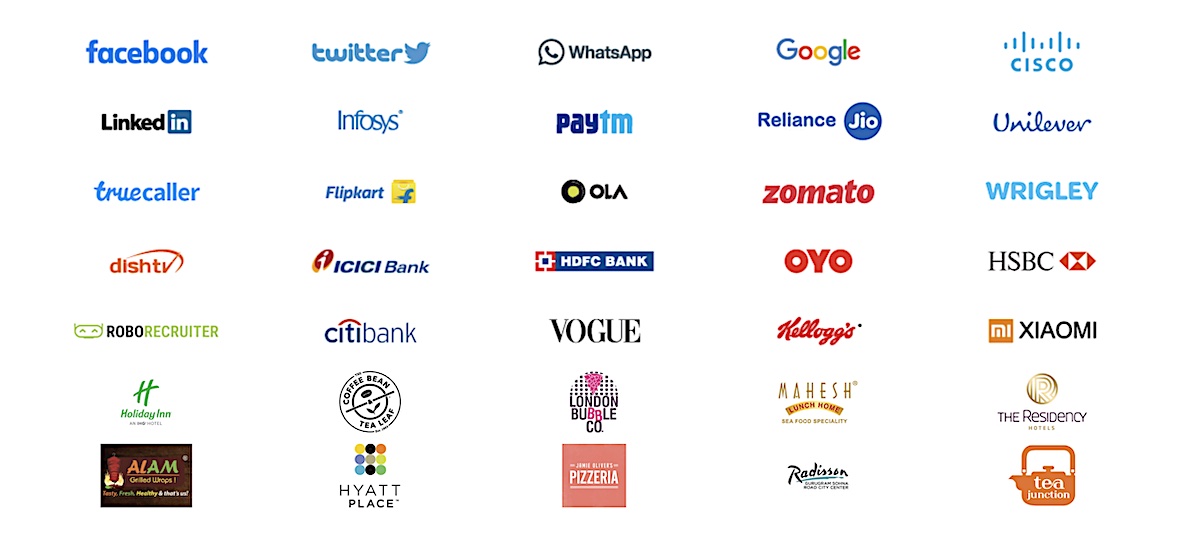Gupshup, a business messaging platform that began its journey in India 15 years ago, surprised many when it raised $100 million in April this year, roughly 10 years after its last financing round, and attained the coveted unicorn status. Now just three months later, the San Francisco-headquartered startup has secured even more capital from high-profile investors.
On Wednesday, Gupshup said it had raised an additional $240 million as part of the same Series F financing round. The new investment was led by Fidelity Management, Tiger Global, Think Investments, Malabar Investments, Harbor Spring Capital, certain accounts managed by Neuberger Berman Investment Advisers, and White Oak.
Neeraj Arora, formerly a high-profile executive at WhatsApp who played an instrumental role in helping the messaging platform sell to Facebook, also wrote a significant check to Gupshup in the new tranche of investment, which continues to value the startup at $1.4 billion as in April.
In an interview with TechCrunch earlier this week, Beerud Sheth, co-founder and chief executive of Gupshup, said he extended the financing round after receiving too many inbound requests from investors. The new investors will provide the startup with crucial insight and expertise, he said. The round is now closed, he said.
The startup, which operates a conversational messaging platform that is used by over 100,000 businesses and developers today to build their own messaging and conversational experiences to serve their users and customers, is beginning to consider exploring the public markets by next year, said Sheth, though he cautioned a final decision is yet to be made.
“Conversation is becoming a bigger part of doing business and it has partly been driven by the pandemic,” he said over a phone call. “Second, we have always been the leader in this space, but the product innovation we have focused on in the last two to three years has worked in our favor.”
The new investment, which includes some secondary buyback (some early investors and employees are selling their stakes), will be deployed into broadening the product offerings of Gupshup, he said. The startup is also eyeing some M&A opportunities and may close some deals this year, he added.

Some of the notable customers of Gupshup, which leads the business messaging market
Before Gupshup became so popular with businesses, it existed in a different avatar. For the first six years of its existence, Gupshup was best known for enabling users in India to send group messages to friends. (These cheap texts and other clever techniques enabled tens of millions of Indians to stay in touch with one another on phones a decade ago.)
That model eventually became unfeasible to continue, Sheth told TechCrunch in an earlier interview.
“For that service to work, Gupshup was subsidizing the messages. We were paying the cost to the mobile operators. The idea was that once we scale up, we will put advertisements in those messages. Long story short, we thought as the volume of messages increases, operators will lower their prices, but they didn’t. And also the regulator said we can’t put ads in the messages,” he said earlier this year.
That’s when Gupshup decided to pivot. “We were neither able to subsidize the messages, nor monetize our user base. But we had all of this advanced technology for high-performance messaging. So we switched from consumer model to enterprise model. So we started to serve banks, e-commerce firms, and airlines that need to send high-level messages and can afford to pay for it,” said Sheth, who also co-founder freelance workplace Elance in 1998.
Over the years, Gupshup has expanded to newer messaging channels, including conversational bots and it also helps businesses set up and run their WhatsApp channels to engage with customers.
Sheth said scores of major firms worldwide in banking, e-commerce, travel and hospitality and other sectors are among the clients of Gupshup. These firms are using Gupshup to send their customers transaction information and authentication codes, among other use cases. “These are not advertising or promotional messages. These are core service information,” he said.
“We have followed Gupshup’s progress for a long while and believe that they are the most evolved customer communications platform In India and increasingly in other emerging markets, with a leadership position in the most attractive and fastest growing sub-segments of the market,” said Sumeet Nagar, Managing Director of Malabar Investments, in a statement.
“We believe that Beerud and team have the unique opportunity to expand the addressable market on the back of new offerings and scale the business up significantly, which is a perfect recipe for massive value creation. I have known Beerud for over three decades, and all of us at Malabar are delighted to partner with Gupshup in the next stage of their journey.”
